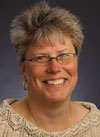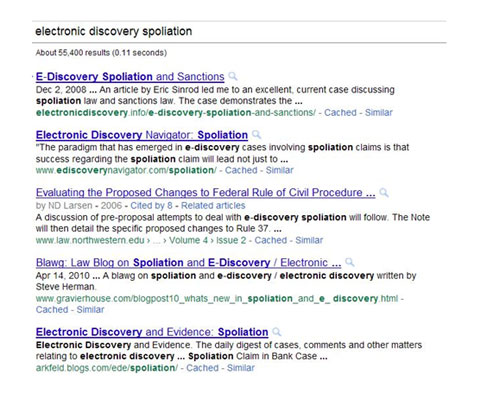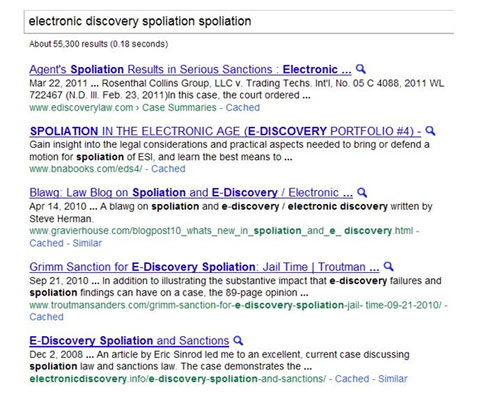 April 6, 2011 – It happens to all of us. We put a few keywords into a general search engine hoping for relevant results only to retrieve web pages that are not quite on point. To make the situation worse, the total number of hits from our search exceeds ten thousand. Many times poor results are due to our desire to quickly locate an answer. On these occasions, we rely on the search engine to do all the thinking, instead of considering a few ideas prior to entering our query into the search engine. There are a few simple steps that may improve your chances of finding relevant information.
April 6, 2011 – It happens to all of us. We put a few keywords into a general search engine hoping for relevant results only to retrieve web pages that are not quite on point. To make the situation worse, the total number of hits from our search exceeds ten thousand. Many times poor results are due to our desire to quickly locate an answer. On these occasions, we rely on the search engine to do all the thinking, instead of considering a few ideas prior to entering our query into the search engine. There are a few simple steps that may improve your chances of finding relevant information.
Choice of word
What do you think of when you hear the word “bridge?” Did you picture a structure that spans over a river? Perhaps you thought of the card game, the change in a musical piece, or the command center of a ship. Other possibilities include the bridge of your nose or an apparatus in your mouth. A search engine can not differentiate which “bridge” is appropriate without additional information.
Query results depend on the terms searched. Consider word combinations that will accentuate your issue or help eliminate wrong concepts. The addition of one or two words can significantly improve the final outcome.
Word weight
Try repeating crucial words within your query. For example, if the topic is electronic discovery spoliation, a typical query would contain the words electronic, discovery, and spoliation. Google produces the following results:

Compare that list with the results when the word “spoliation” is included twice in the search.

The number of results retrieved is almost identical. However, only two of the top five websites are the same. In addition, the relevancy ranking of the duplicates is different.
Put phrases in quotes
Most searchers put a search term in quotes to produce web pages that contain that exact phrase. While many search engines do produce different results if you put a term of art in quotes, Google’s tip page says, based on their algorithm, the use of quotation marks is “usually unnecessary and you might be missing good results.” For an interesting discussion on this topic, see the ResourceShelf post entitled, Google: Phrase Searching Using Quotation Marks.
Use advanced search functions
Some search engines, such as Google, Yahoo! and Ask, support a separate advanced search interface that can help produce precise results. Bing requires users to perform the initial search and then choose the advanced option to begin the filtering process.
Advanced search options often include the ability to filter by format (e.g., limit to only .pdf documents), domain (e.g., retrieve only websites that end in .org) or a specific website. As an example, if the topic of interest is child labor laws, restricting your search to websites with the domain of .gov will weed out anything not produced by a governmental entity.
Most engines also include options to improve the outcome of your search directly from the results screen. Look for margin lists entitled “related searches” and the ability to “narrow by date” after you have run your query.
Try a different engine
Try using a few different search engines. Explore new engines such as Exalead, which is another general purpose search engine, with lots of interesting features such as a personalized home page, filetype search, and individual site thumbnails available in its search results. There are also vertical search engines, which focus on a specific segment of online content including legal topics.
Many of us are creatures of habit. We start our search in a particular engine, and we stay there. However, every search engine has its own proprietary algorithm thus each produces slightly different results. Expand your horizons.
About the author
Bev Butula is the manager of library of services at Davis & Kuelthau, Milwaukee. She is a past president of the Law Librarians Association of Wisconsin. Butula has written articles and spoken to numerous groups on issues such as effective Internet research, evaluation of websites, and legal research. Prior to obtaining her Master’s Degree in Library Science from UWM, Butula was a litigation paralegal.
Previous articles
